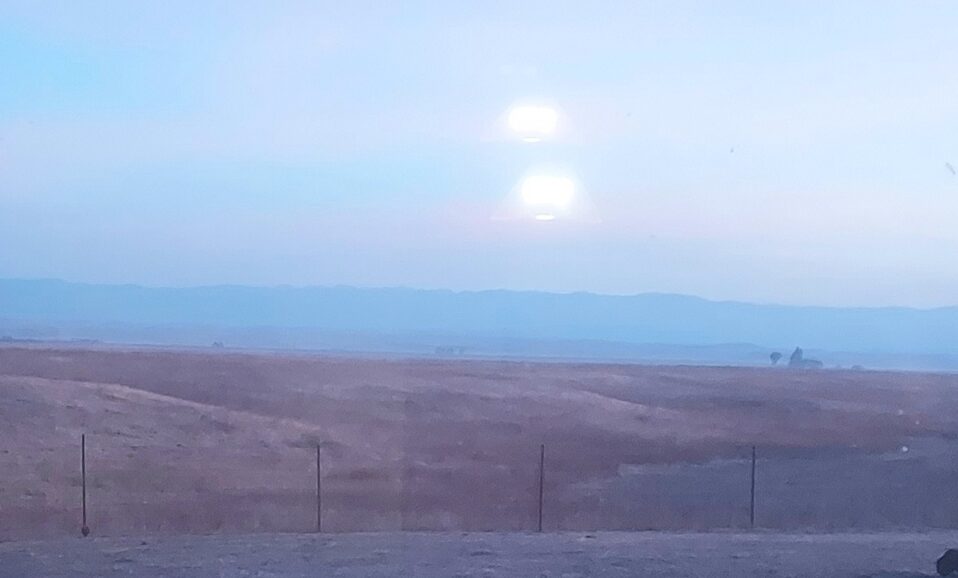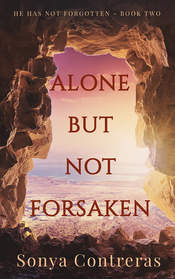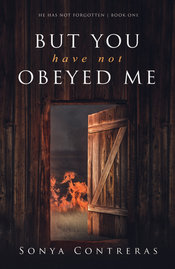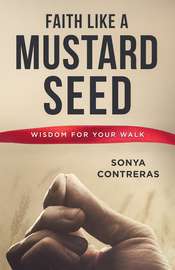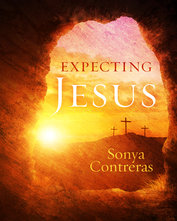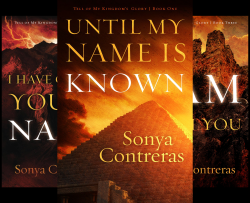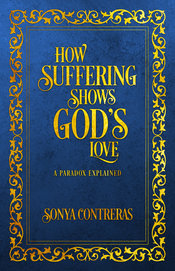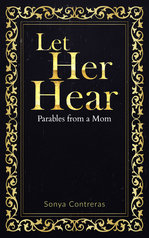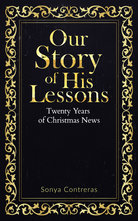- Home
- Index
-
My Books
- Book List
- Writing/Reading Articles Listing
-
My Short Stories
- What God Lost
- What God Lost — Part 2
- When Hope Was Lost
- A Battle in the Heavens
- To Live Forever
- Finding Peace
- Empty Hands
- From Fire and Thunder to Love and Submission
- The Coming One
- Forgiveness Made Possible
- The Innkeeper's Wife
- Do You Have The Right Words?
- The Lamb of God As Told by a Scribe
- What Love Is This?
- When Heaven Came Down
- Family
- Faith

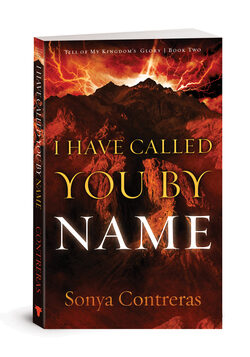
Dear Reader,
My purpose in writing I Have Called You by Name is to present the faithfulness and holiness of God. He seeks His people to be conformed to His pleasure.
They must recognize Him as supreme, holy, and the only source for their needs.
Their journey, found in Exodus, Numbers, and Deuteronomy, is hard, made harder when the lessons are not learned. The consequences seem severe, because we do not understand God’s holiness.
If you are reading this book for adventure, you have come to the wrong book. This book chronicles a people who lived a mundane, dreary life of desert, sand, and sameness. But if you read this book because you want to see God in that sameness, then you have come to the right book.
Readers want strong, independent, controlling characters. That attitude keeps us from knowing God. When we see God, we realize our own weakness, nakedness, need. No one likes that shame. But that is where God brings us.
Today’s readers desire entertainment with a happy ending. This portion of Scripture is not happy; thousands died on that wilderness journey. But know their God, Who is real and lives today. He still gives hope. He still seeks His people to be conformed to His pleasure.
Come with me to know the God Who has called you by name.
Sonya Contreras
Chapter 1
Sinai Desert 2450 B.C.
Moses licked his lips, tasting the salt of his dried sweat. He willed his feet painfully forward. Were they even attached to his body? He leaned on his staff. The tool that so often aided his sheep, back in his shepherd days, he now used to hold himself upright.Moses followed the cloud that led the people from Egypt. From the Reed Sea, they had moved into the Desert of Shur. The desert’s dry wind sucked moisture from his skin, leaving it as withered as an over-dried raisin.
He looked at the people. The initial excitement of escape from Egypt and going to their own land had dissolved in the desert’s heat. Now they trudged behind the cloud, like ants mindlessly following the next one in line.
They had found no water for three days.
He tightened his cloak around him, rubbing at his forehead with its sleeve. He could not sweat, but chills sent spasms through his body. After shivering, he threw his hood off in frustration at being hot again. His heat varied like the wind, only no wind brought relief.
He tried to focus on the cloud. He rubbed his arm across his face, seeing double. He blinked, but his dry eyes would not focus.
Was it a paradox that the Lord led by a cloud that held no water for His people?
Would they die in the desert before reaching the Land promised to them?
His steps faltered, jarring his thoughts from doubt. He glanced at the cloud again. The Lord was faithful. He would give His people water.
A scream sliced through his mind’s fuzziness. In the back of the wagon rolling beside him, a woman had thrown off her blanket. “Give mercy!” She then fell back lifeless.
The wagon stopped.
Moses’s eyes met Nathan’s, who drove the wagon. Moses could read the fear in his face.
Nathan had been one of the slaves. The desert had equalized the needs of all men, leader and slave alike. Nathan shook his head. His voice cracked, “Her thirst makes her see dreams.”
Moses turned his gaze next toward Ellis, sitting beside Nathan on the wagon seat. He remembered Ellis as the slave who had spit in his face after Pharaoh had refused to provide any more straw for the slaves who made his bricks. What would this hardship do to him?
Ellis was watching his wife Dinah and their son, lying lifeless in the wagon bed. He shook his head, muttering, “Where is the Lord?”
Nathan hung his head. He held his head in his hands. When he spoke, his answer was quiet, muted by his thirst, “The Lord has not changed. If He knew of our suffering under the hands of Pharaoh, He knows our suffering under the heat of the desert. I don’t know what the Lord wants.” He raised his head to look again at Moses. “Ask Him. I have been.”
Moses nodded. No other words were needed. The Lord’s people were getting to know Him.
The horse’s increased gait jolted Reut from her stupor. Her head hurt from moving, but she sat up anyway, for she smelled something besides dust.
Beside her, her sister threw off the blanket that shaded them and crawled forward to the wagon seat.
Adlai, her abba, braced her with his arm. “Tamara, don’t fall!” He pulled back the reins.
The horse strained against the bit.
Ahead Reut saw a wadi. Would it be another empty water channel? She struggled to stand, bracing against a pile of bedding, squinting ahead at the reflection of the sun off water. Water!
Abba stopped the wagon closer, then set the brake. Before he could stumble to the ground, Tamara scrambled from the wagon, and ran.
Reut watched her small form squeeze around people. She shook her head. Tamara always pushed her way into the midst of things. Why didn’t she take a vessel to bring water for Ima? Reut looked back at the blanket, unmoving over her mother. Did she still breathe?
Tamara reached the water. Stumbling into it, she drank. She jerked away from the water, spitting, “Marmar. Bitter.”
Others crowded behind Tamara.
Reut could no longer see her. When she next caught a glimpse, all she saw was her little sister’s hair floating on the water. “Abba, she’s not coming up!”
Abba ran through the wall of people toward the water. To Reut, watching, his progress was slow.
Tamara’s head came to the surface for a moment. She clawed at the air.
Breathe... Reut watched unable to take a breath herself.
No one else noticed.
Why wouldn’t someone help her? Everyone was at the water. No one seemed to notice.
Reut wove in and out and around the wall of people until she reached the water’s edge. But where she had last seen Tamara, she saw only waves and more people. Was she too late?
“Reut. Here.” Abba called.
She glanced along the waters’ edge.
Someone held Tamara.
She was alive!
Reut hurried through the crowd. “Oh, Seth. You got her!”
Seth nodded, holding Tamara.
Abba stroked Tamara’s hair from her face.
Tamara clung to Seth’s neck. “I couldn’t breathe. People kept pushing me deeper.”
Seth licked his lips, then grimaced. “They push like cattle.”
Reut leaned against her father’s shoulder and looked at Tamara. “They didn’t even notice you were drowning.”
Seth gestured to the cattle on the far side of the water, tasting once, only to turn away. “Look, the animals won’t drink it!”
Tamara laid her head on Seth’s shoulder as they walked to their wagon. She wiped her mouth. “I’m thirstier.”
Seth placed Tamara beside his aunt.
Covering Tamara with a blanket, Abba patted her arm; then turned to face Seth. “Words cannot tell my gratitude. If I lost her…” His voice broke and he swallowed.
Seth interrupted. “Glad I was there.”
Reut straightened the blanket over Tamara. “She needs someone to protect her.”
Abba brushed his face with his cloak’s sleeve. He shook his head, lowering his voice. “How do I protect my family from the dangers of the desert when I can’t even provide them water?”
They pushed against Moses like wolves surrounding for the kill. “Give us water! Do you want us dead?”
Moses braced himself with his staff to keep from falling.
One man stumbled to the front of the throng. He held up a small, limp bundle. “My baby died.” His voice rasped with the thirst that plagued them all, but there was menace in his tone. “My wife couldn’t feed him. What are you going to do about it?” The challenge was hurled at their leader for all to hear, and silence hung over the waiting crowd.
Moses looked at the motionless bundle in the man’s arms. He could not form tears to weep.
A chant rose. “You caused our death.”
Some shoved and pushed him.
Moses backed up.
Others picked up stones. “You led us here to die.”
Moses licked his lips, forgetting that they bled. His tongue scraped his skin as if it was a dry mortar. Words would not settle their hearts. Only a miracle would calm this mob. He turned from the crowd and hiked up the mountain, leaning on his staff. When he had reached a summit, he looked back at the people.
Their chant could still be heard.
He knelt before the cloud. “This people will kill me if they don’t have water soon. We depend upon Your mercy. Give what we need. We are Your people.”
He raised his head to look at the cloud. What more did God want him to do? As he stood, he stumbled. He grabbed an acacia tree to stand.
“Take that branch.”
Moses paused. Was that the Lord’s voice, or his own dizziness speaking to him? He looked at the branch in his hand. He obeyed and broke the branch.
As he descended, dragging the branch, the people stopped chanting and grew quiet.
He stood before them. “The Lord has heard your plea. He has granted your request.” He lifted the branch over his head and threw it into the water.
The people stepped back as it splashed into the center of the pool.
Moses rubbed his hands down his cloak to free himself of the branch’s dirt. He bent to drink, gulping the sweetness, quenching his thirst. He splashed water over his face and arms, wiping his face with his sleeve. Bracing himself with his staff, he stood. He motioned to those still holding stones. “Drink.”
One man knelt, brought a handful of water to his lips and licked. Then he dropped to his knees and immersed his head in the water.
Others fell before the water and drank.
Moses watched. “My God, You have satisfied Your people. We are at Your mercy.”
Nathan drank, wishing to never leave the water. It filled the longing of his body. Its coolness soothed the cuts and soreness on his lips and mouth. His knotted insides relaxed. Water washed away the tingling of his legs where he had lost sensation. He submerged his head and arms, letting the water drip down his back and wet his tunic. The heat of the past three days fell from his body as the coolness of the water covered him. His flesh expanded, absorbing the moisture like a hungry man taking in food.
Wiping his mouth with the back of his hand, he looked around him. He could see better. His head no longer felt detached. He was whole again.
He watched the people splash, sing and dance in the water. They praised the gods that brought them there. Some bowed, giving homage to the water.
He submerged his head once more before filling his jars. He was torn, wanting to linger at the water, but remembering Salome and his own children lying back at the wagon. He stood, watching the people crowding into the water. He filled the jars and raised them to his shoulders.
Ellis joined Nathan. “The water so easily becomes a god.” He looked at the people. “How quickly they forget the Nile, where the Lord showed that He was God over the water.”
Nathan thought of Salome, shouting out her dreams because she had no water. He paused to grip a jar better. “We worship what we see. We must seek the God Who cannot be seen. I could not praise God when He withheld the water and Salome dreamed. Now it is easy to praise.”
Ellis lifted his own jars to his shoulders. “Why did He wait?”
Nathan pushed his way against the crowds. “Don’t we depend upon Him more when we have nothing else?”
Hannah shifted the water vessel on her shoulder as she moved through the crowd.
Amos, her brother, could not have kept his balance on his wooden leg with this jostling crowd, so it was good he stayed behind. Didn’t she struggle with two good legs? She stumbled, falling to her knees. She grabbed for the jar. It rolled out of her reach.
Someone stepped on her hand.
No one allowed her to stand.
Another tripped over her.
Someone stepped on her foot.
“Make room.” A man forced people from her. “Give me your hand.”
She looked up and saw Phinehas. In Egypt, she had helped him treat those afflicted by the plagues.
He grabbed her hand and lifted her to her feet.
Placing weight on her foot, she winced, stumbled, and fell into his arms. She felt her cheeks grow hot.
He caught her, supporting her.
He fought against the flow of people.
No one allowed them to move.
They were pushed together. “This is not working.” Phinehas lifted her in his arms and carried her.
Hannah clung to his neck for balance.
Finding a break in the people, he asked, “Where’s your wagon?”
She pointed. “But I can walk now.”
“I’ll look at your foot before I decide that.”
“People kept falling on me…” She stopped when she felt his gaze on her. Her hair had fallen around her face. She closed her eyes self-consciously, then opened them again to find him still looking at her. She could feel her face flush.
As they reached her wagon, Amos hopped towards them on his wooden leg. “What happened?”
“I fell.”
Phinehas placed her on the wagon bed. “The people trampled her.”
Amos peered over his shoulder, color rising in his face. “I should have gone for the water.”
Hannah shook her head. “No one could move in that mob.”
Phinehas reached for her foot. “Men act like animals.”
She tucked it under her tunic.
He looked at her face. “I must see your foot.”
Hannah hesitated before extending her foot.
He removed her sandal and watched her face.
Hannah pointed as she sensed his eyes on her. “My foot is here.”
“Yes, but I watch your face to know your pain.” He took the other foot and stretched it out.
She retrieved it. “It’s only this foot.”
His eyes twinkled as she looked into them. “You doubt my doctoring skills? I compare it to the other.”
“I wonder at how long you study my foot.” Hannah retrieved her good foot from his hand.
Phinehas nodded. “I’ll wrap it to prevent further twisting.”
Amos hovered over him. “I have canvas to rip into strips. Would that do?”
Phinehas examined the material and nodded. “You must stay off it. Keep it up to prevent swelling.”
She nodded.
He tapped her wrapped foot. “I’ll return with water.” He grabbed one of their water vessels and turned to leave.
Hannah grabbed his arm. “Wait!”
Phinehas searched her face.
Hannah dropped her hand. She could feel the heat rise in her face again. How forward he must think her! “Please, don’t get water, now.”
“You are thirsty?”
“Yes, but no water is worth getting hurt.”
Phinehas smiled. He had started this journey because of Hannah. He cared not for the Land that they were promised. Now he would have a reason to visit. “I’ll shove through any crowd to bring you water.”
“No!” She was surprised by the force of her voice.
Phinehas gentled his voice. “I won’t act like an animal to do it.”
“Will that stop others from acting like one?”
He shrugged and smiled. “I’ll return.”
Moses and Aaron stood before the congregation after all drank their fill. The water had brought healing.
Moses sighed.
Aaron looked at Moses. “What?”
“It’s good to see the people satisfied.”
“Why the sigh?”
“The people know nothing of freedom and its responsibility. As slaves, they were told what to do their entire lives.”
Aaron shrugged. “They come to us when things go wrong, just like they went to Pharaoh. How do you teach responsibility?”
Moses watched the people, raising their tents. “They must have rules and structure. Total freedom without boundaries will bring mob rule.”
Aaron shook his head. “They would have stoned us today.”
“It’s not rules for its own sake.” Moses hesitated. “Rules without reason are tyranny.”
Aaron leaned on his rod as he watched the people. “How do we teach that reason?”
“We don’t.”
Aaron lifted his eyebrows.
“We tell them the Lord’s Words. Sometimes, He doesn’t give the reason. Sometimes, we obey, then understand.” He shrugged. “Maybe.”
Moses raised his voice to speak to the people. “Listen to the voice of the Lord your God and do what is right in His eyes, then you will not have any of Egypt’s diseases.” Moses met Aaron’s glance. The reason behind the rules.
The cloud had not moved since the water had been given. Reut heard the Words of the Lord but thought more of what she needed, not what God wanted. She scrubbed a tunic beside her mother at the water’s edge. Feeling around her neck for the gold menat of Taurt, a goddess who protected infants and pregnant women, Reut covered the necklace with her hand. She may not be pregnant, but at thirteen and ready to marry, she felt the goddess’s hand protecting her. Did she not heal quickly from thirst by Taurt’s hand?
Carmel, Reut’s mother, rubbed a stone across a soiled spot. She turned to her sister-in-law Salome. “You’re feeling better?” she asked.
Salome glanced at the children playing by the water. “Yes. Nathan said I was quite out of my head during the last day without water.”
Carmel looked over the twelve springs. “It’s hard to remember thirst, sitting by these pools.”
Salome laughed. “The shade from the palm trees helps, too. Etania counted seventy of them.”
Carmel watched the children skipping rocks in the water. “They do keep you busy.”
Dinah wrung water from a cloak. “Before we depended upon Pharaoh to supply our needs; now we depend on God for everything. Ellis reminded me that ‘everything’ is more important as we travel.”
Reut threw the stone she used to scrub. “Why do you depend upon this God? He doesn’t feed us!” Reut could feel her ima’s eyes on her, but she would not apologize for her rudeness. “Egypt’s gods never made their people go without water or food.”
Salome spread her wet blanket on the hot sand to dry. “God leads us to our Land flowing with milk and honey.”
Reut glared at her aunt. She wanted to shout, “Where’s the honey now?” But she bit her lip instead.
Dinah sat in the sand. “How long before we reach the Land?”
Carmel still watched her daughter. “Perhaps our God brings us to know Him before He brings us to the Land.”
Reut spit out, “Why would I want to know Him? He gives thirst and hunger.”
Salome responded, “Hardships make us look to Him. His peace holds us through them.”
Reut studied Salome’s face. Did she want to look to Him?
Phinehas strolled over to Amos’s wagon, looking for Hannah. He had cared for Hannah’s ankle every day.
Hannah’s father, Hakeen met him. “Shalom.”
Phinehas nodded. “Be at peace.”
Hannah did not rest in her normal place.
Phinehas continued to look for her.
Hakeen pointed to a pallet under the shade of his canvas. “Drink? We must talk.”
Phinehas settled on the pallet. After drinking, he cleared his throat and rubbed the back of his neck.
“You like Hannah, yes?”
Phinehas breathed deeply. He had been practicing for this discussion. “Very much. I ask your permission to marry her. I could provide well for her.”
Phinehas studied Hakeen’s expression. He could read nothing. What else could he add? Surely, being a doctor was enough; after all, Hakeen was only a lowly stone carver. Phinehas gulped the cold drink, swallowing the lump in his throat. He waited.
“Is that all?”
Phinehas veiled his anger but spoke directly. “What more would you like to know?”
Hakeen prompted him. “You are the grandson of Aaron, yes?”
Phinehas nodded with confidence. Apparently Hakeen wanted his lineage, his tribe. “Aaron is my grandfather; Eleazar is my abba who married one of the daughters of Putiel.” That should validate him.
Hakeen shook his head. “You lack one thing.”
Phinehas could feel the heat rising in his face. How could Hakeen say that he lacked anything? His station was better than Hakeen’s could ever be! Had he not treated the elite of Egypt?
“You lack the peace of knowing the Lord.”
Phinehas shook his head. Was Hakeen jesting? How could God have anything to do with his marriage? He stared, unable to speak.
Hakeen continued, “Hannah accepts the Lord’s control over her life. When her mother died, she grieved but accepted the Lord’s choice to take her mother from her. When Amos lost his leg, she praised the Lord for saving his life. Her countenance shows the peace of submission—which you admire. She will not be given to you if you do not know the Lord.”
Phinehas could not hold his words back any longer. “What difference would it make, knowing her God?”
Hakeen paused at the interruption. “If you tell her to do something contrary to what the Lord desires, she’ll be torn in half—for she would want to please you, but her love for the Lord would call her in another direction. You would destroy her.”
Could he believe what he was hearing? Could a God demand such control that a wife could not obey her husband? “I saw this God in the plagues of Egypt. I saw His power in the Reed Sea. I know of Him. I see His control.” He stopped short of saying that this God controlled him, for he would not lie. His knowledge of God was enough.
Hakeen nodded.
Phinehas was encouraged. “So when can we arrange the wedding?”
Hakeen stopped nodding. His face grew stern. “Knowing of the Lord is not knowing Him. When you know Him, you will not need to convince me of His presence in your life. I will look on your countenance, and I will know. Until that time, do not come near my daughter.”
Phinehas glared into Hakeen’s granite eyes. Hakeen would not be a man to cross.
Memories of Hannah’s hair curling around her face floated into his mind. He would not let her go. Phinehas stood.
Hakeen stopped him. “Do not attempt possession of my daughter until you have the Lord possessing you.” He extended his arm.
Phinehas looked at the outstretched hand. He wanted Hannah now. Awkwardly he met Hakeen’s hand.
Hakeen shook it heartily. “When you meet the Lord, we will talk.” He smiled.
Phinehas nodded. What had he just agreed to? What would knowing this God do to his life?
Esmail watched his sheep graze as the sun set over the western mountains. The darkness would soon spread the evening coolness. His flocks had flourished in Egypt’s pastures of Goshen, where they had lived since his ancestor Joseph called his brothers from their own land. Goshen produced content, healthy flocks. Esmail knew all the best water and grazing spots in Goshen. At night, they had corralled the sheep for protection.
Now in this desert, nothing but his watchfulness protected his flock from lions, jackals, and cheetahs.
With nighttime approaching, Magal, his brother, approached. He detested sheep. He thrived with people.
Esmail shook his head. He understood only the quietness of his flocks.
Magal sauntered towards Esmail. “Here’s dinner. Where do I watch tonight?”
Esmail took the offered meal. “The hills to the north hold the animals at bay. That is where we watch. Bring the mothers with young close, and have your rod at hand.”
Magal nodded, glancing toward the hills. The instructions never changed. “Think we’ll see any action?”
Esmail responded as usual. “Preparation is the best safety.”
Magal shrugged. He turned and studied the cloud that led them. “It will soon turn to fire.”
Esmail glanced at the cloud of this God Who led them. Knowing Him did not bring Esmail comfort. “Didn’t He kill all Egypt’s livestock?”
Magal shifted his rod and shrugged. “Ours weren’t touched.”
Esmail squatted to eat his meal. “I lost ten lambs and seven ewes when we had no water.”
Magal looked at the flock. “Looks fine now.”
“The ewes were my best mothers, giving twins every time. Without water, they could not nurse.” Who was this God Who could give water if He chose, but waited until his flock suffered loss? If this God were present, Esmail would demand payment. No one took from his flock without retribution.
Magal looked again towards the campsite
“Do you look for someone?”
Magal startled at the question. “No, not at all.”
Esmail could tell that he was lying, but before he could question further, a lamb bleated beside him. He laid down his meal and drew the lamb to himself with his staff. He did not want his scent on the lamb. He rubbed a dead lamb’s fleece over its face, securing the fleece under its belly. He then united it with a ewe that had lost its lamb. The ewe smelled her dead lamb and accepted the orphan. It nursed.
Magal watched him work. “Looks like they’ll make it.”
Esmail motioned toward camp with his meat back in his hand. “Hear about when we’ll reach this land?”
Magal shook his head. “We just follow the cloud.”
Esmail wiped his mouth. “What will it be like?”
Magal shrugged. “They say our ancestors had herds that made them rich.” He sauntered toward the hills to begin his watch.
Esmail finished his meal and tossed the bone to his dog at his feet. The death of his lambs had not been in vain. Their food supply had been replenished. But Esmail would remember the loss of his flock for a long time.
Who was this God Who waited to give water?
I write about what matters...to you---
women, wives and moms---
about your family, faith and future.
I write about what's hard, what helps and what heals.
I show you how it's done. And not done.
I hold your hand as you find what matters to the Savior.
And let go of those things that mattered to you, but not to Him.
I write about what matters...to Him.
Sonya Contreras
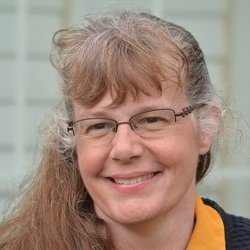
Author of Biblical fiction, married to my best friend, and challenged by eight sons’ growing pains as I write about what matters.
Receive weekly articles by giving your email address below:
